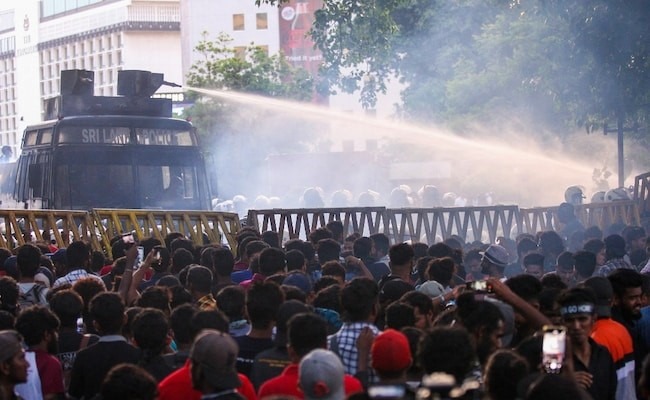| Translate This News In |
|---|
Crisis-hit Before a massive gathering planned for later in the day demanding the resignation of President Gotabaya Rajapaksa, Sri Lanka lifted a curfew that had already been flouted by thousands of people overnight.
The march, the most recent manifestation of dissatisfaction triggered by the nation’s unparalleled economic crisis, has already drawn sizable numbers to the capital Colombo.
Following threats to sue the police chief from opposition parties, rights advocates, and the bar association, the police rescinded the stay-at-home order that had been issued the previous evening.
Numerous anti-government demonstrators disregarded the curfew, forcing the railway administration to run trains to transport them to Colombo for the rally on Saturday, according to officials.
A senior defence source told AFP that the curfew had no deterring effect and had instead encouraged more people to demonstrate in the streets.
In order to go to Colombo, passengers had taken over trains.
After running out of foreign currency to import necessary products, Sri Lanka experienced months-long shortages of food and gasoline, protracted blackouts, and soaring prices.
However, demonstrators supported by the major opposition parties had chartered private buses to go to the capital despite the fact that the nation’s already limited supply of petrol are almost gone.
In protest of the government’s poor handling of the issue, protesters have set up camp outside Rajapaksa’s office on the seafront.
The police protecting Rajapaksa’s official mansion, which demonstrators have pledged to storm on Saturday, were reinforced by thousands Lankan soldiers carrying assault guns who were bussed into Colombo on Friday.
For a security operation to safeguard the president, the authorities have sent out over 20,000 soldiers and police personnel.
Three courts turned down police efforts to forbid the protests on Saturday on Friday.
The United Nations pleaded with the government and demonstrators to keep Saturday’s demonstrations peaceful.
The Office of the UN High Commissioner for Human Rights issued a statement saying, “We urge Sri Lankan authorities to use moderation in the policing of meetings and ensure that all necessary efforts are made to avert violence.”
After Rajapaksa supporters attacked nonviolent protestors outside the president’s office in May, riots broke out all over the country, resulting in nine fatalities and hundreds of injuries.
Sri Lanka has been in bailout negotiations with the International Monetary Fund after defaulting on its $51 billion external debt.


















